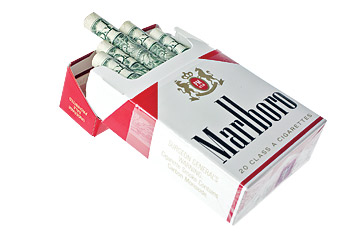
Antismoking advocates tout this month's record increase in the federal cigarette-tax rate, which on April 1 spiked from 39¢ to $1.01 per pack, as a move that will bolster the federal budget while saving an estimated 900,000 lives. Supporters say the measure will stop 2 million kids from lighting up and spur about 1 million adults to quit, but the sharp hike has some smokers fuming. Cigarette taxes, detractors argue, are a way for governments to line their coffers by legislating personal choice--and a prime example of a regressive "sin tax," the term often used for fees tacked on to popular vices like drinking, gambling and smoking.
The sin tax is an established tactic. In the early 1500s, Pope Leo X underwrote his lavish lifestyle in part by taxing licensed prostitutes, and Peter the Great preyed on Russian vanity two centuries later by charging men who grew beards. In the Federalist papers, American patriot Alexander Hamilton proposed an excise tax on alcohol to boost revenues and curb consumption. The measure, enacted in 1791, sparked the Whiskey Rebellion, in which federal authorities were forced to quash an uprising by livid Pennsylvania settlers.
The U.S. has taxed cigarettes since the Civil War, although its levies often lag behind those assessed by other nations. This month's increase--signed by a President who's trying to kick the habit himself--comes as recession-battered states are considering charges on everything from pornography to marijuana as a way to pad their budgets. Tobacco taxation enjoys broad public support, but other recent efforts to impose sin taxes have sputtered. Proof, perhaps, that in trying times, doing bad can feel really good.
